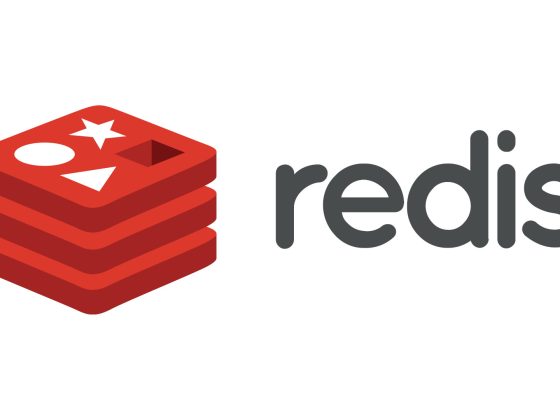During 2020 a record level of investment was pumped into technology companies despite the widespread economic uncertainty created by the Covid-19 pandemic. In Europe alone, some $41bn was invested into technology startups as venture capitalists sought out the next hottest prospect.
Collaboration, cloud and ecommerce companies have benefited from the accelerated digital disruption in 2020. But what’s catching the eye of investors in 2021 and what trends do they expect to emerge?
From our partners:
Verdict spoke to eight venture capitalists and industry experts to hear their 2021 tech investment predictions and the trends they expect to shape the year.
The rise of “software as medicine”
“I think a huge startup trend we will see is ‘software as medicine’ – startups looking to find solutions to hygiene and healthcare issues using technology. Healthily is a great example – it’s an app that is enabling self-care during Covid and beyond, allowing people to access understandable, accurate health information which is personalised to them.
“Digital healthcare will continue to be a huge focus next year with the process of technology curing not only symptoms but entire diseases, with boundaries getting continually pushed in the healthcare sector. While the pandemic still has its hold, investments into healthtech startups are bound to increase.”
– Rakesh Narayana, global director, RB Ventures
A shift from offline to online infrastructure
“In 2021 we are excited to meet with consumer technology companies that are tapping into areas witnessing long term fundamental behavioural change – some of which were accelerated by COVID-19 and the ensuing global lockdown – but others that were already part of our long term thesis.
“These include companies facilitating the transformation of offline to online infrastructure via improved distribution channels – everything from telemedicine, home wellness, fitness, habitual purchases such as groceries. This builds into our wider long term thesis around technology as a tool for empowering greater connection and community from afar – be it vertical social networks (for e.g. Peanut), platforms around audio (for e.g. Chalk), or tools for self-improvement and education.
“Lastly, we continue to track companies working in the sustainability and circular economy space. The size of the green economy is estimated to be worth $1.3trillion in the U.S. alone, and we believe that consumer demand for more eco-conscious standards of service will only increase further.”
– Christian Dorffer, CEO of Sweet Capital
2021 requires caution to avoid a bubble
“2020 offers a cautionary tale of not jumping on a tech-bandwagon that is good for the moment, but not for the long run. In 2021 patient capital will need to be front and centre, if not, history has already shown us the consequences. The dot.com crash, for example, was a perfect storm of rapid valuations and lower consumer adoption – until it burst. Yet, despite the market’s downfall, the consumer adoption then continued unchecked taking us to a point where we are today. We need to exercise more caution in 2021 if we don’t want to repeat the mistakes of the past.
“I wouldn’t be surprised if we see venture valuations in pandemic-oriented industries tumble – gold rushes never last long and investors should focus on building for the future, with the knowledge that time can be as valuable as capital when it comes to startups achieving maturity in a given market. A typical example of this is biotech businesses, where research and testing are paramount and it may take years, even decades, to bring a product to market. However, by deploying patient capital, these businesses often create products which are of a high quality and truly address a gap in the market and thus have the foundations to succeed in the future.”
– Tim Mills, managing partner, ACF Investors
Edtech can offset “widening inequality” caused by Covid-19
“With Covid-19 seeing 90% of students globally unable to attend classes in person, and teachers switching to holding classes via Zoom, WhatsApp and Microsoft Teams, the sector can no longer hide from the urgent need to digitise and embrace technology. Now more than ever, it’s evident that if deployed properly, technology will be the key enabler to offset the potential widening of inequality in education caused by Covid-19.
“We think the key opportunities are in corporate upskilling, remote learning platforms and ‘edutainment’ – meaning companies that are capitalising on the switch to mobile, creating entertaining and educational content to match different mediums.”
– Tom Williams, partner, Talis Capital
London faces a difficult year
“2021 will see a lot of the ‘hidden’ issues around the Bounce Back Loans come to light. Many companies (probably over half) will not meet their repayments and will be subject to issues of banks putting them into liquidation or writing off the debt. I am also expecting the Future Fund to continue for the first half of the year and continue to be used to support companies that do not necessarily need state support.
“It will also be a difficult year for London. While its position has been validated recently by high profile VC firms setting up their European offices here this year it will undoubtedly lose some of its appeal to its European counterparts. This will be compounded by the knowledge that founders can set up their business everywhere and hire the talent they need remotely, meaning they avoid expensive offices in London and instead look to other areas.”
– Stephen Page, CEO and Founder, SFC Capital
Settling into changes started in 2020
“If 2020 was a year of accelerated trends and sudden upheaval to digital, 2021 will be the year we see the world settling into the change. Particularly for financial services, robust technological infrastructure should be a given moving forward and the growth potential in emerging markets will be even more compelling, so I expect we’ll see more M&A in unsaturated regions.
“I also believe we’ll see central bank digital currencies (CBDCs) roll out across the globe in the next year. Digital currency more broadly will start to see real use cases emerge and investors will notice.
“More broadly, where we invest our time, resources and capital will be considered with a longer-term view. Customer-centricity, consolidation and digital transformation will still be priorities, but with a different edge behind them.
“I’m hopeful that out of this crisis the fintech investment landscape will become more transparent, collaborative and focused on the people we serve.”
– Fady Abdel-Nour, head of global M&A and investments, PayU
Green-tech will be an attractive opportunity
“One of the biggest investment trends we’ll see this year will be in green technology and sustainability. 2020 was a real turning point for businesses in the sustainable space. The spectacular valuations of Tesla and Workhorse in the electric vehicle (EV) sector was mirrored by firms focused on hydrogen fuel cell (Bloom Energy/Plug Power), battery supply chain players, renewable energy assets and the large green utility providers.
“In 2021 we’ll see a huge rise in green tech, making it an attractive opportunity for investors. EV growth will continue to be key with hydrogen playing a bigger part. We’re on the verge of a green revolution and there is a real opportunity to emerge from Covid-19 to a low carbon economy, but this takes efficiency. One of the biggest challenges with excess renewable capacity is that it is inconsistent. We hear about green energy being ‘sold back to the grid’ but it’s difficult to get more than 10% of capacity back to the grid. So software companies that allow existing infrastructure to work more cleanly, or enable renewable assets to work efficiently, will be a key trend and investment opportunity this year.”
– Matthew Jellicoe, co-founder, OnePlanetCapital
Changes in VC investment strategy
“The Covid pandemic will lead to several long-term shifts in VCs’ investment strategies in the new year. Firstly, after a widespread slowdown in investment activity during the first four to six months of Covid, VCs are sitting on record amounts of dry powder, or committed, but unallocated capital. This will lead to heightened pressure to invest in 2021—with one key focus including startups that empower distributed work, collaboration and meet-ups. We’ve seen this with startups such as London-based online events software company Hopin and Berlin-based video conferencing startup Wonder both raising funds this year.
“We’ll also see an increase in startups being founded and funded outside of traditional tech hubs, as distributed teams have learned to operate from virtually anywhere and VCs have become accustomed to doing deals remotely. In fact, with the pandemic leading many of us to appreciate spending less time away from our homes and families, VCs will likely become much more selective when it comes to travelling.”
– Iskender Dirik, managing director, Samsung Next Europe
This feature is originally appeared in Verdict.
For enquiries, product placements, sponsorships, and collaborations, connect with us at [email protected]. We'd love to hear from you!
Our humans need coffee too! Your support is highly appreciated, thank you!








